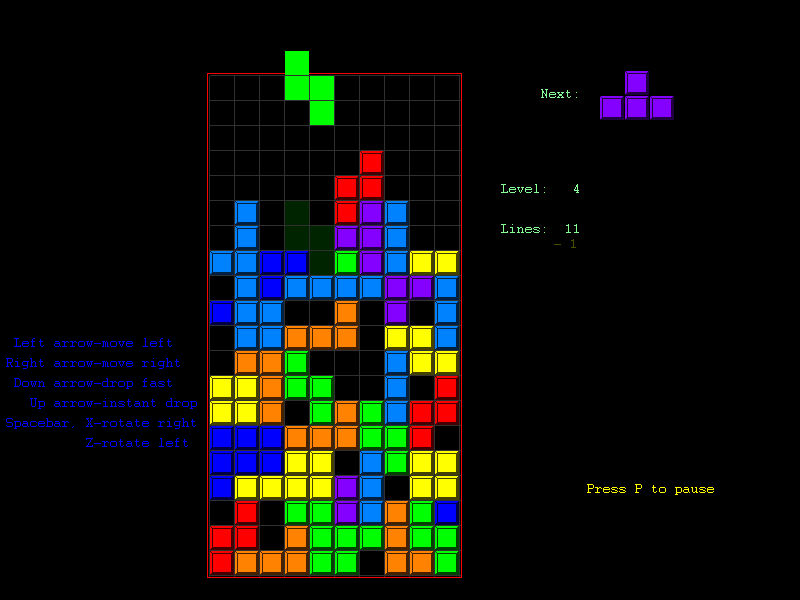For over 30 years, gamers old and young have wasted countless hours lining up animated building blocks in the name of Tetris – but have you ever wondered what make the Nintendo classic so darn addictive?
Featured Image VIA
Don’t worry though – because plenty of people have offered up scientific explanations as to what makes Tetris such a tempting prospect.
From the creator of the game itself to university researchers and a few psychologists thrown in for good measure – here are just a few of the theories put forward.
The Creator
Soviet Academy Of Sciences programmer Alexey Pajitnov first created Tetris in a Russian lab in the 1980s as a means to test computer equipment using his puzzle of falling bricks and therefore knows a thing or two about what makes the game tick.
Speaking during the game’s 30th anniversary in 2014, Pajitnov offered up the following theory:
Tetris is a very simple game, but it appeals to many players because it’s both visually and intellectually challenging.
I think that’s what makes the game so addictive. We have an inherent desire to create order out of chaos and Tetris satisfies that desire on a very basic level, while being easy to understand and quick to learn.
The Writer
Adam Alter wrote on the subject of Tetris and the futility at the heart of the game in his book ‘Irresistible: The Rise of Addictive Technology and the Business of Keeping Us Hooked’.
Alter offered up the following summation of the appeal of Tetris:
The hardship of the challenge is far more compelling than knowing you are going to succeed.
The game allows you the brief thrill of seeing your completed lines flash before they disappear, leaving only your mistakes. It is in this sweet spot – where the need to stop crumbles before obsessive goal-setting – that addictive experiences live.
The Neurologists
Tetris also has a surprisingly significant impact on the brain.
Neurological research published in 2009 revealed that playing the game can actually increase neurological efficiency when it comes to things like critical thinking and reasoning – but that’s only the half of it.
Another study published in PLOS One, put forward the theory that Tetris may also help users better deal with traumatic events in their life.
Oxford researchers conducted a series of tests that highlighted how Tetris was capable of reducing the build-up of flashbacks often linked to traumatic events.
Volunteers were asked to watch a series of clips containing scenes of death and injury. After 30 minutes, they were then asked to play Tetris, with the majority of test subjects reporting a “significant reduction in flashback frequency”.

Image VIA
The Psychologist
Dr Tom Stafford, from the University of Sheffield’s Department of Psychology cited the game’s “chain of partial-solutions”and “prospect of solving more mini tasks” was, on one level at least, as satisfying as scratching an itch.
According to Stafford, the game’s appeal is linked to a psychological phenomenon known as the Zeigarnik effect.
First coined by Russian psychologist Bluma Zeigarnik, the effect links back to her previous study, in which the waiting staff of her local café were observed to see how they developed their impressive capacity for remembering large orders to the point of service, at which point these tasks were instantly forgotten.
In essence the Zeignarik effect refers to the brain’s inherent ability to remember uncompleted tasks easier than those they have finished, with the appeal of Tetris being in that it invites the gamer into what Dr Stafford sees as a “world of perpetual uncompleted tasks” which can prove highly addictive.
Dr Stafford said:
Tetris … presents a world of perpetual uncompleted tasks.
It shows how our minds are organised around goals and that our memory is not just a filing system where information is passively stored, but it adjusts dynamically according to our purposes.
So there you have it. Tetris: the most addictive title in the history of gaming.















